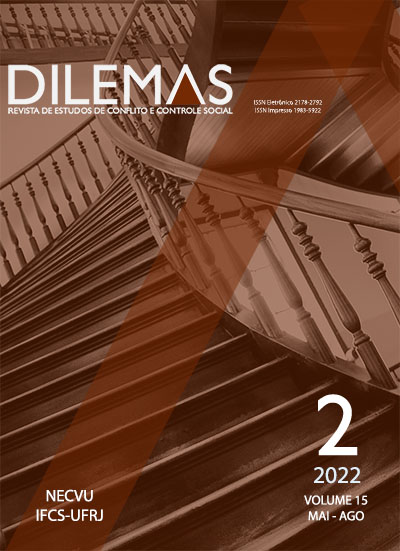Assessing the Hypothesis of the ‘Geography of Opportunities’ in the Light of the Concept of Neighborhood Effects: Empirical Evidence from a Research Conducted in Salvador, Brazil
DOI:
https://doi.org/10.4322/dilemas.v15n2.43143Keywords:
poverty, economic residential segregation, neighborhood effects, geographies of opportunities, SalvadorAbstract
This article addresses different methodological proposals that analyze the mechanisms of the concept of neighborhood effects. Based on a case study conducted in five low-income neighborhoods in Salvador, Bahia, Brazil, we investigate under what conditions proximity to elite neighborhoods expands the geographies of opportunity. It is pointed out that social and economic articulations between socially distant groups decline in peripheral neighborhoods due to the lack of public spaces, which is combined with the physical isolation of elite condominiums, and to high crime rates. In conclusion, we plead for a holistic approach to social inequalities in urban policies.Downloads
Additional Files
Published
2022-05-09
Issue
Section
Articles
License
Upon submitting a text, the authors retain copyright and grant DILEMAS - Revista de Estudos de Conflito e Controle Social the right of first publication, with the work simultaneously licensed under the Creative Commons License type attribution BY (CC-BY), which permits sharing of the work with acknowledgment of authorship and initial publication in this journal.

